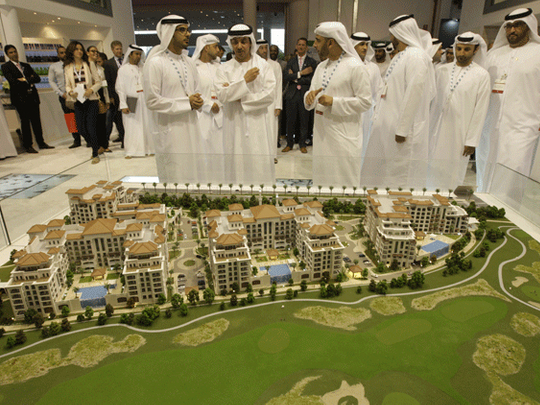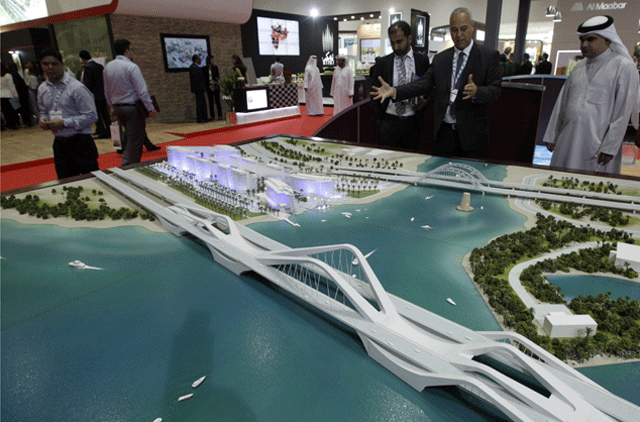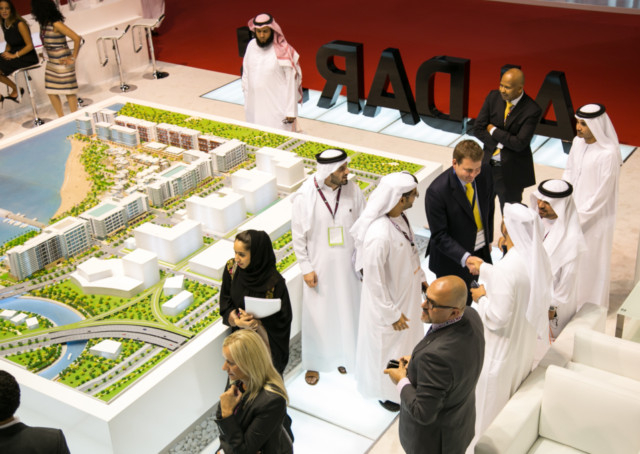
Abu Dhabi: Cityscape Abu Dhabi is showing robust growth for the first time since 2009.
Pre-registered visitor numbers have grown 26 per cent year-on-year, signifying the largest number since 2010.
The annual event kicked off Tuesday and runs until Thursday at the Abu Dhabi National Exhibition Centre.
Last year’s event attracted more than 15,000 participants, and this year the show is expecting to see a double-digit increase in visitors to match the growth of the show, which itself will be 10-20 per cent bigger.
Positive sentiment
“Our Cityscape events are a reflection of the sentiment in the real estate market,” says Wouter Molman, Director, Cityscape Group, organisers of the event.
“Abu Dhabi real estate regained momentum last year showing healthy sale price and rental increases, reflecting improved investor confidence in the emirate’s property market.”
According to JLL’s Q4 2013 Abu Dhabi Real Estate Market Overview, there are currently 218,000 residential units in the UAE capital, of which 11,000 were delivered in 2013.
This year, approximately 20,000 units are expected to be delivered, with new projects mainly located in Reem Island, Saadiyat Island, Danet and Rawdhat.
On the back of increased consumer spending and a surge in tourism, the retail sector is also starting to finally mature. There is currently about two million square metres of retail space in the capital, owing to the new World Trade Centre Mall and Eastern Mangroves Promenade, and the upcoming Yas Mall, Capital Mall, and Nation Towers that will be the headline openings this year.
Tourism upbeat
Abu Dhabi also witnessed a 40 per cent increase in tourists last year, which put its hospitality sector on the map. It has 18,500 hotel rooms, with the Capital Centre Arjaan by Rotana, Novotel, and Adagio in Bustan Complex all due to open this year.
The Abu Dhabi government has a key role in sustaining this growth, says Molman. “Its huge oil sector creates wealth but does not lure many foreign professionals who would buy homes in the emirate. Abu Dhabi’s sustainable growth ultimately depends on government initiatives to diversify its economy and generate sustainable employment in private sectors such as banking and tourism.”
Until recently, foreign investors have only been granted 99-year leases in designated investment zones across Abu Dhabi. In a bid to attract more investors, Abu Dhabi Municipality announced in January this year that foreign investors can now own property on a freehold basis in these zones.
Other recent regulatory updates include the removal of the rental cap in Abu Dhabi, which will ensure landlords can safeguard their property as an income-generating asset that is more in line with market rates.
Additionally, the Abu Dhabi government’s decision to limit housing allowances of its employees living in Dubai, affecting an estimated 20,000 people, has reportedly caused an increase in demand for residential properties in Abu Dhabi, though specific figures are unavailable.
Show highlights
More than 120 global exhibitors, including companies from Egypt, Turkey (which has the largest international pavilion this year), Oman, Kuwait, India, Russia, the UK, Qatar and the US, will cover four halls and more than 15,000 square metres of exhibition space.
Major local developers taking centre stage include, Aldar Properties, Mubadala Development Company, the Urban Planning Council, and Eshraq Properties, while new exhibitors or those participating after a year or two away include Masdar, Tamouh and Baniyas.













